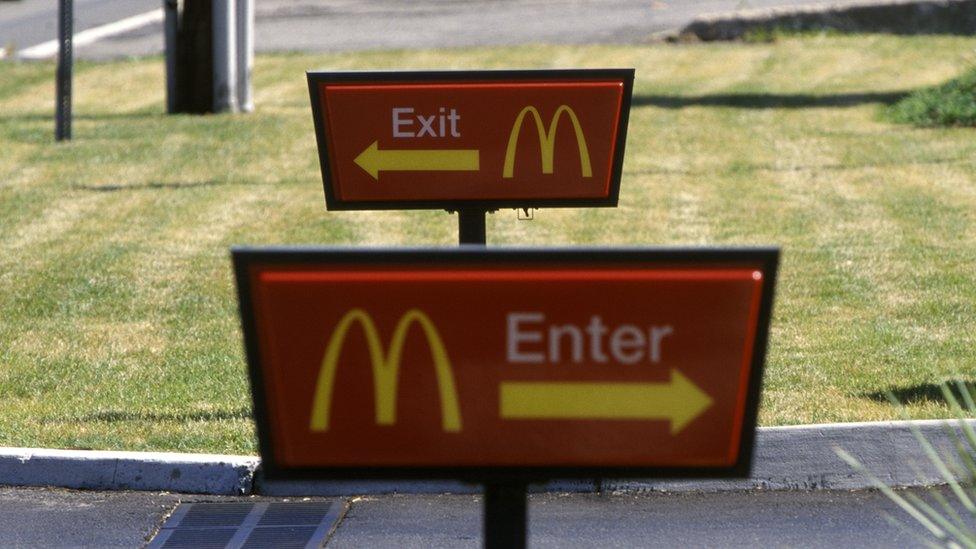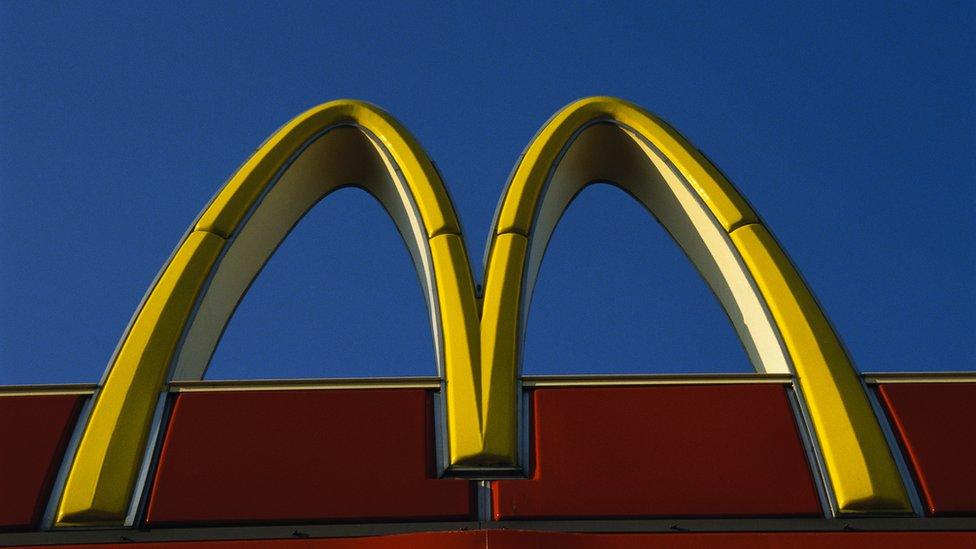Why did McDonald's flip out of Luxembourg?
- Published
- comments

Why did McDonald's move their golden corporate arches to the UK?
There are two parts to this question. First, why did McDonald's leave Luxembourg and second, why choose the UK as your new home?
The first one is pretty easy. The Grand Duchy has been the subject of aggressive EU probes into potential "sweetheart deals" struck with multinationals which meant they paid far less than the headline rate of corporate tax in Luxembourg of 20%.
Fiat and Amazon both had their collar felt and pockets hit by EU investigations into their Luxembourg based activities.
There are also two significant pieces of legislation on the near horizon which are focusing multinational minds.
The first is a clampdown on Base Erosion and Profit Shifting or "BEPS" for short. It is a tax avoidance strategy where profits are artificially shifted within companies from jurisdictions that have high taxes to jurisdictions that have low or in some cases no taxes. It's designed to keep profits in the country where they were REALLY generated.
The second is country-by-country reporting. This will force companies to list all profits and taxes paid in every country in which the company has a presence. This will make it almost impossible for companies and countries to strike secret deals, as they will be visible to other governments who might scream blue murder.
The tax heat is being turned up all over Europe and McDonald's has decided to flip before it gets flame grilled by authorities and public opinion.
It may get burnt anyway by an ongoing investigation into alleged avoidance of over €1bn in tax.

Which brings us on to the second question. Why the UK?
The company gave a very clear explanation. It was because of the "significant number of staff based in London working on our international business, language, and connections to other markets".
Let me suggest a couple of others. The UK has one of the lowest corporate tax rates of any major economy. It's already at 20% (compared with 35% in the US and 33% in France) and is due to fall to 17% by 2020. But it's not the lowest - so why didn't McDonald's go to Ireland where corporation tax is only 12.5%?
That's a more difficult decision to second guess. But here goes. After the furore over Apple's tax affairs - the so called "double Irish" deal that saw Apple pay minimal taxes on billions of international profits - and the move by the EU to force Ireland to collect €13bn in back taxes (currently under appeal) - it could be argued that a move to Ireland is not keeping your head down.
The UK has another attraction. It doesn't tax dividends paid out to foreign companies or individuals - just ask Lady Tina Green. Dividends paid out of companies in France to parent companies attract a tax - it "withholds" some of the money (in much the same way some of your salary is withheld in tax by your employer).
Corporate tax experts tell me that makes the UK a very attractive place to have a holding company.
Failure to respond to a changing environment until it's too late is often called the boiling frog syndrome. As the heat slowly gets turned up, you don't notice the gradual increase in temperature until, before you know it, you are boiled.
It seems McDonald's has learnt that lesson.